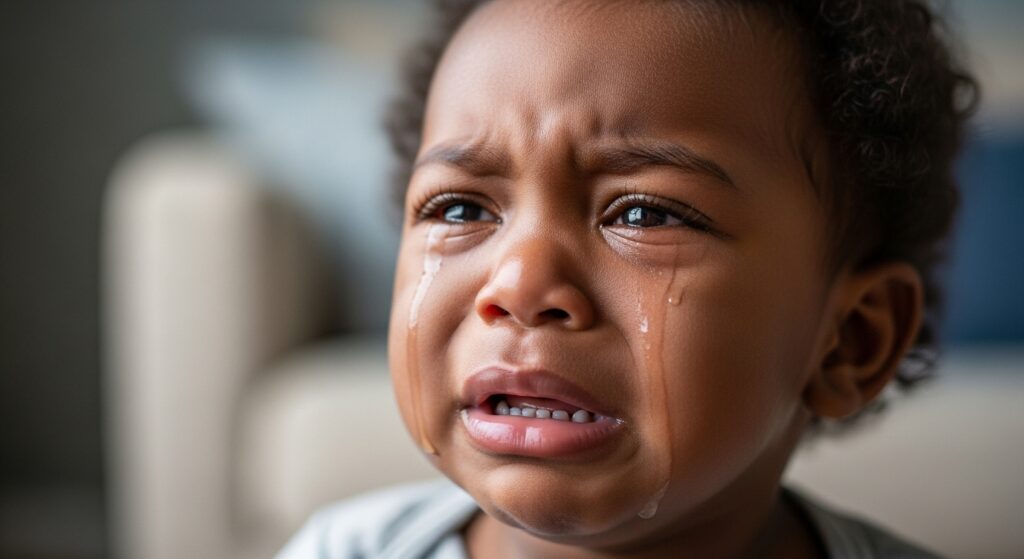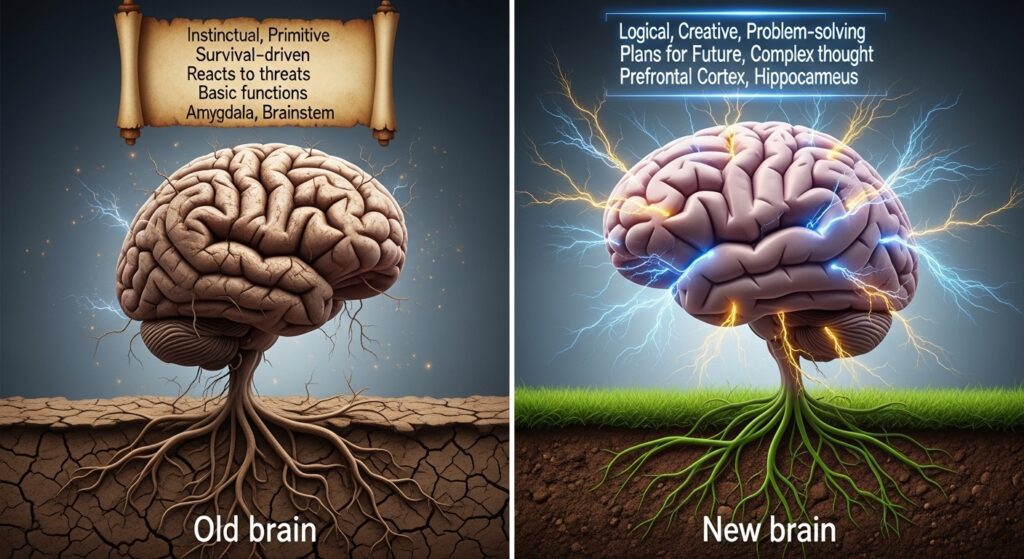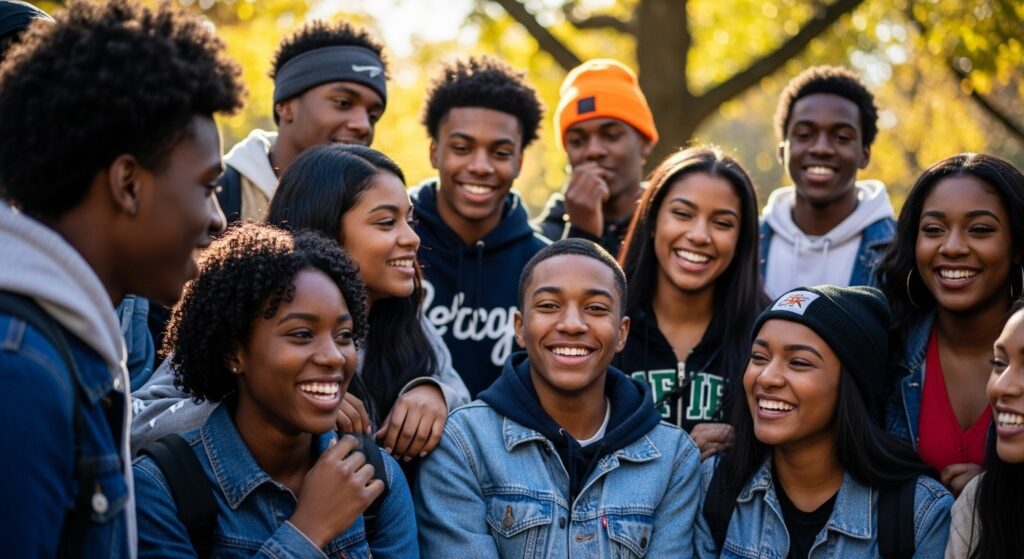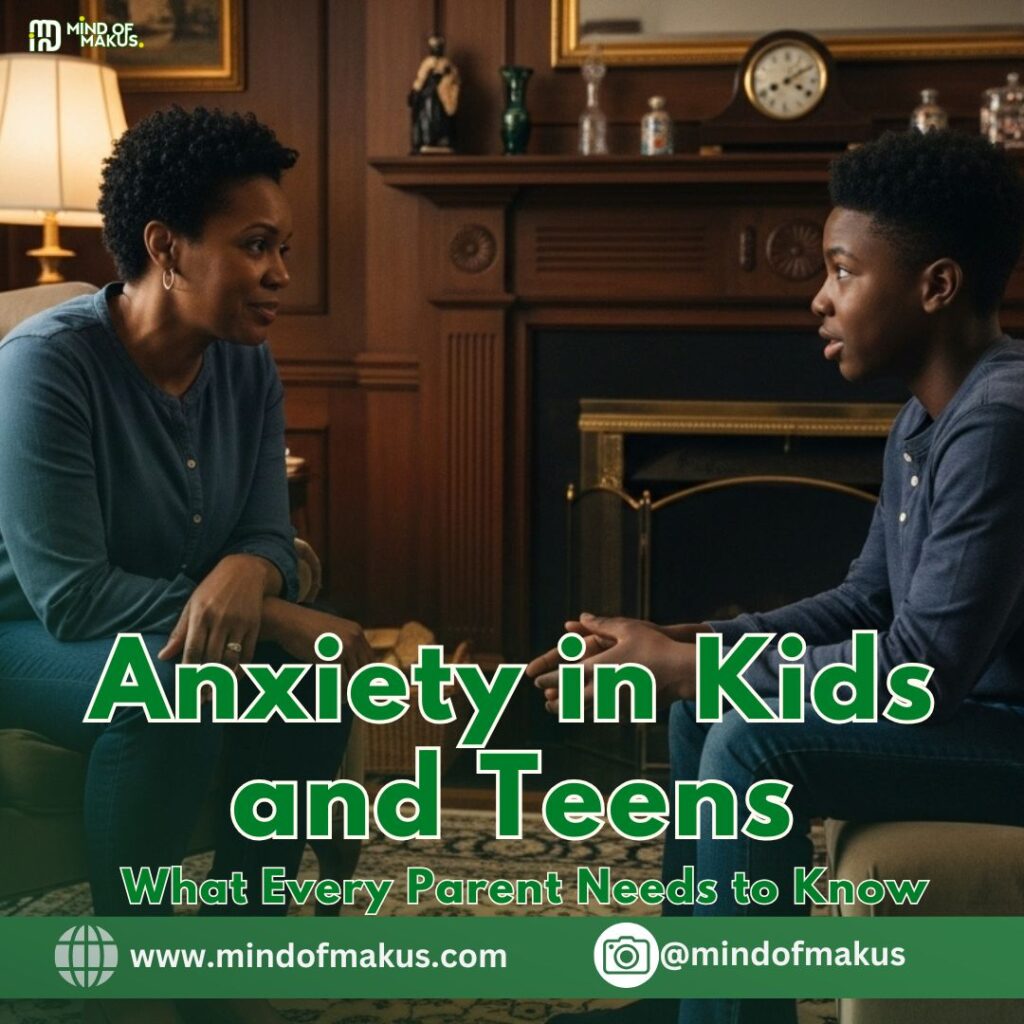Hello dear friends,
Have you ever looked at your child — so full of promise, curiosity, and life — and wondered what goes on in that beautiful mind?
Maybe lately you’ve noticed they’re quieter than usual. Or they worry a lot about things that seem small. Or they cling to you when you leave. Or maybe your once-confident teenager now struggles to sleep at night, overthinks endlessly, or avoids things they once loved.
It starts early in life and can be a natural part of emotional development. If you have ever observed a child starting school and clinging to parents for dear life, and after a few weeks, walking into class without looking back. Then you know what I mean, we are meant to feel our fear of leaving the familiar and the safety of home.


A problem only occurs when that fear becomes so entrenched in our behaviour that it stops us from living, enjoying life, and getting on with fulfilling God’s will on earth.
Remember how it feels to go for a job interview, exam or presentation, imagine feeling like that every single day. The exhaustion, the frurry, the lack of trust in anything, worst case scenarios all day long….. that is how it feels to be unwell with anxiety.
If you see it — the fear, the unease, the restlessness — you’re not imagining it. Anxiety in kids and teens is real, and more common than many of us were ever taught to believe.
The good news? With understanding and gentle guidance, you can help your child navigate it.
Let’s talk about it — openly, honestly, practically.
What Is Anxiety, Really?
At its core, anxiety is our brain’s way of trying to protect us. It’s the “what if?” alarm bell that keeps us alert to danger. Our brains have an old part that has remained locked into the days when we were cave-dwellers at risk of being eaten by wild animals, so we had to be able to predict worst-case scenarios and move fast to safety. The newer parts of our brain evolved to help us balance that survival instinct and have some executive control over our base instinct.


In small doses, this is healthy — it keeps us safe, helps us prepare for challenges, and reminds us to study for that exam or look both ways before crossing the road.
But for some kids and teens, that alarm gets stuck on.
It rings even when there’s no real threat, causing worry, fear, avoidance, panic, stomach aches, sleepless nights, or endless overthinking.
Why Are Kids So Anxious These Days?
It’s not just “in their heads.”
Many things can fuel anxiety in children and teens today:
Academic pressures: Tests, grades, performance expectations.
Social stress: Fitting in, bullying, peer pressure, change in home, school, friendship circle, migration.
Family conflict: Divorce, tension, or changes at home, new baby at home, death, domestic violence, verbal aggression in the home, emotional manipulation at home, financial strain in the home, ill health in the home.
Global issues: Bad news, pandemics, climate change — they hear and feel more than we think. It’s on every device, in every conversation.
Personality & wiring: Some kids are more sensitive and cautious by nature. These ones are meant to be the heart of the world, but in a 24/7 news cycle, it’s overwhelming.
Trauma & past experiences: Sometimes there’s a root that needs gentle healing.
Common Signs of Anxiety in Kids and Teens
Anxiety doesn’t always look like panic attacks. Sometimes, it hides in plain sight.
Look for:
✅ Excessive worry or asking “what if?” constantly
✅ Trouble sleeping, nightmares
✅ Stomach aches, chewing nails, picking skin, headaches without a clear cause
✅ Avoiding school, activities, or social situations
✅ Meltdowns or tantrums (especially in younger kids)
✅ Overthinking and perfectionism (often in teens)
✅ Irritability, anger, or clinginess
✅ Constant reassurance-seeking (“Are you sure you love me?” “Are you mad at me?”)
Every child is unique — trust your gut if something feels “off.”


How You Can Help as a Parent
1️⃣ Normalise It — Don’t Shame It
Avoid saying “Stop worrying!” or “There’s nothing to be scared of.”
Instead, try: “I see you’re feeling worried right now. That’s okay. Let’s figure this out together.”
2️⃣ Listen More Than You Lecture
When your child shares, hold the space. Don’t rush to fix it or dismiss it.
Ask gentle questions: “What’s the worry telling you?” “What do you feel in your body?”
3️⃣ Teach Coping Skills Early
Deep breathing, grounding exercises, worry journals, or repeating calm statements: “I am safe. I am loved.”
4️⃣ Model Calm
Kids borrow our nervous system. If you panic, they panic.
Take care of your own stress and model healthy coping.
5️⃣ Keep Routine and Connection
Predictability soothes anxious minds. Bedtime rituals, family meals, warm hugs — they remind your child they are safe. Children thrive on routines. Adults establish them and enforce them.
6️⃣ Know When to Seek Help
If anxiety is disrupting daily life — school, friendships, sleep — it’s time to talk to a mental health professional. There’s no shame in getting extra support. Therapy, counselling, or coaching can work wonders. In many situations, parent knows what they don’t want for their kids, but also don’t know what they want, so it is important that we remain open to learning how to parent the child in our house, without comparison or harsh judgment.
A Word for You, Dear Parent
If you’re reading this, you already care deeply.
Remember — you don’t need to have all the answers. You just need to be present and open.
Your calm presence, kind words, and small everyday actions plant seeds of safety in your child’s mind. Seeds that grow into resilience.
Final Thoughts: Anxiety Isn’t the End of the Story
Anxious kids can still thrive. They can learn courage. They can learn that fear doesn’t have to be in charge.
They can grow up to be kind, thoughtful, and strong, with you walking beside them.
So breathe. Trust that your gentle love is powerful medicine. Invest in building a well-connected, safe relationship with your child.
Question for you: What’s one thing you wish you knew about anxiety when you were younger?
Share your thoughts in the comments — you never know who it might help today. 💙
Until next time — hold space, hold hope, and hold your child close.
With warmth,
Amaka

